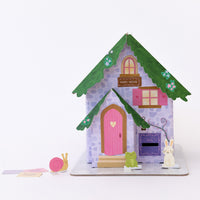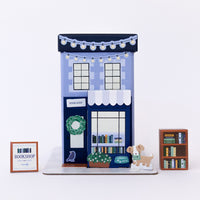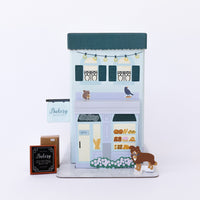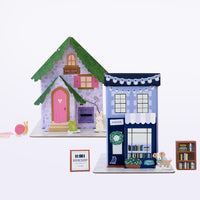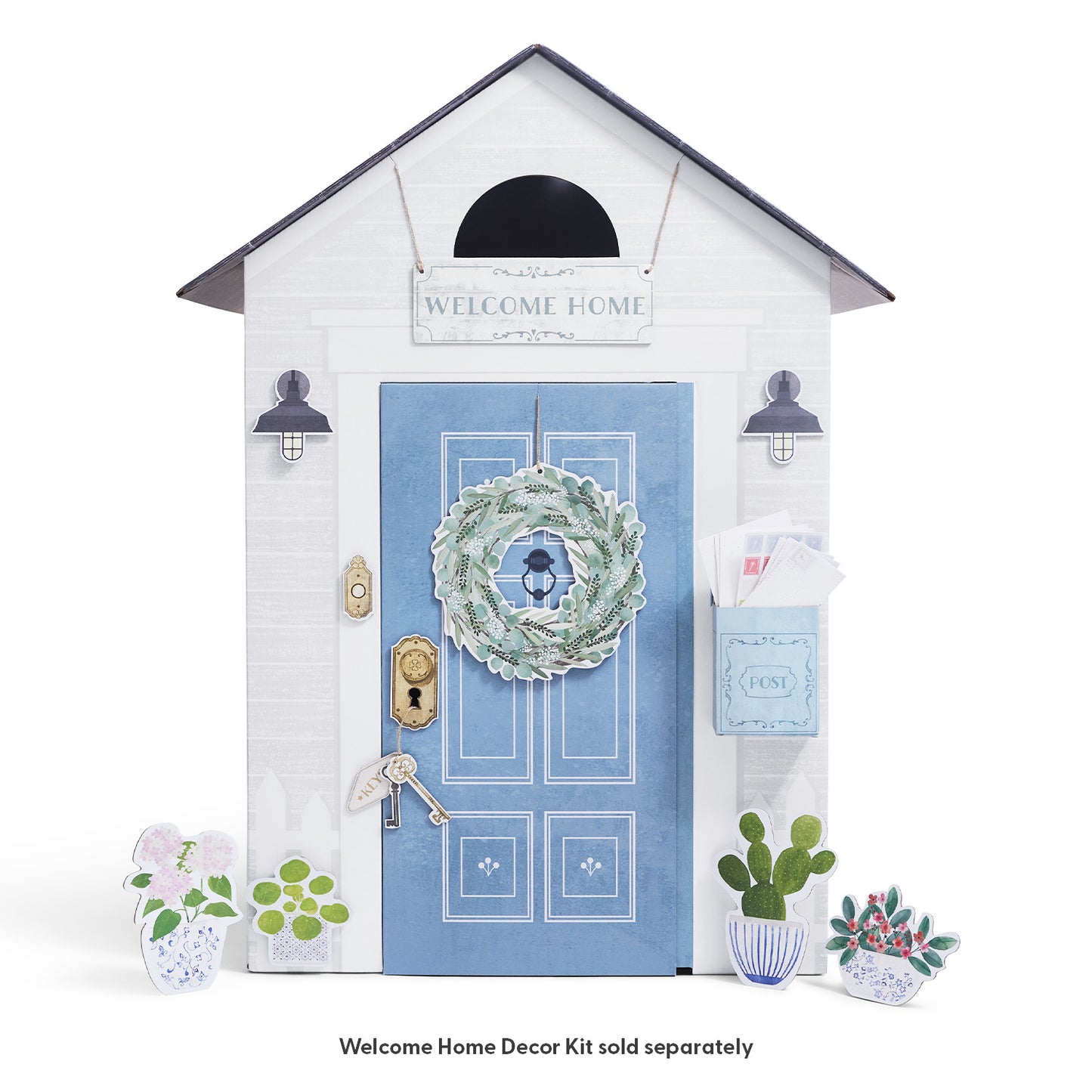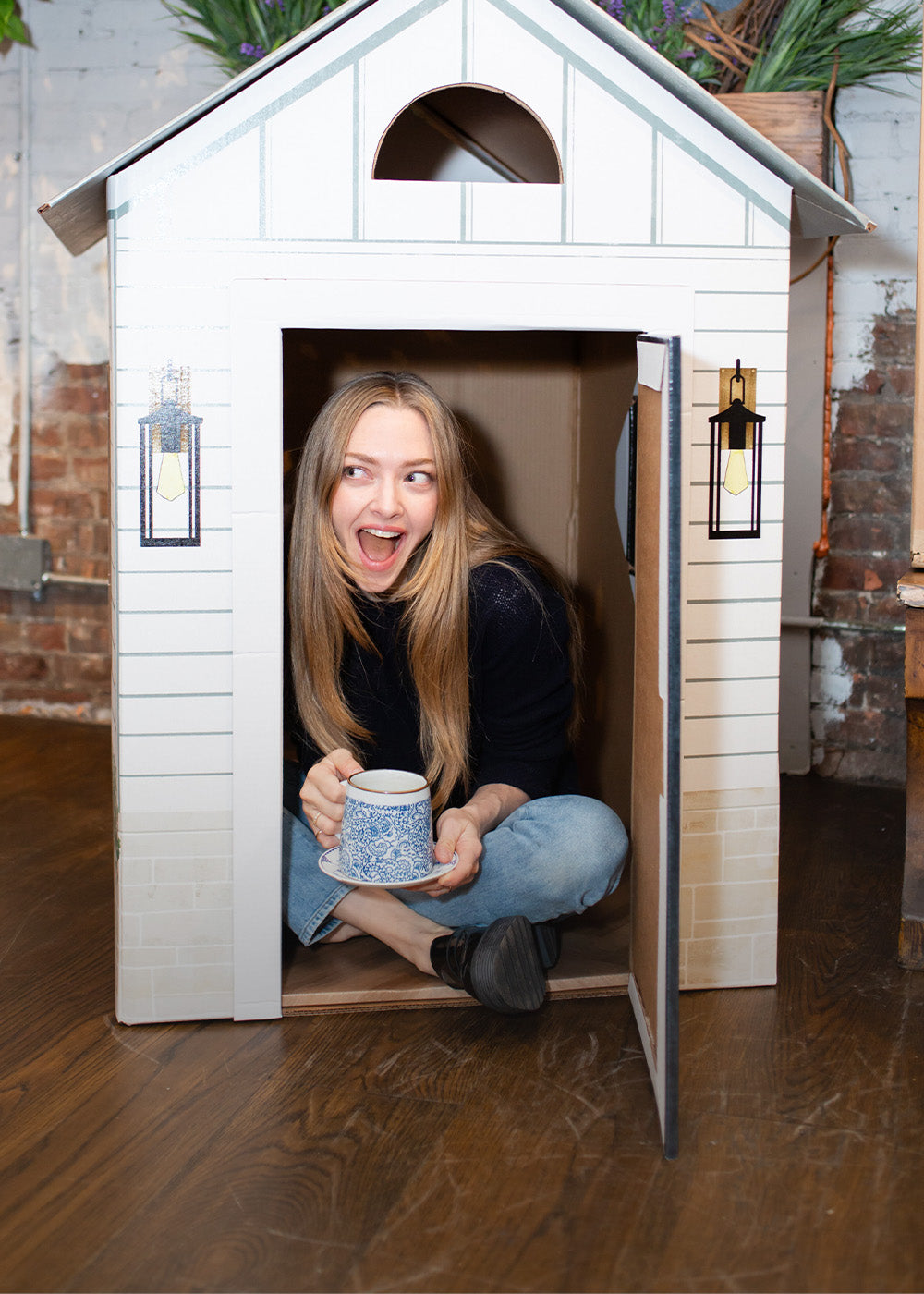
Play is essential for children of all ages and is a significant factor in their overall mental well-being. This May, with Mental Health Awareness Month in mind, we wanted to share some benefits of playtime to remind you that playtime isn't just fun and games; it has profound implications for kids. Play promotes well-being for kids through cognitive development, emotional regulation, social skills, imagination and creativity, stress reduction, and self-confidence. Our indoor playhouses are an excellent venue for children to learn, grow, explore, and express themselves during playtime. These spaces provide a canvas for children to unleash their creativity and make sense of the world around them.
The Power of Imaginative Play
The psychological benefits of imaginative play for children's cognitive and emotional development are limitless. A 2019 Journal of Leisure Research study found that engaging in playful activities significantly reduces stress levels. The researchers noted that play provides a temporary escape from daily pressures and fosters positive emotions and relaxation. Beyond relaxation, we've rounded up some more of the core benefits play provides below:
- Cognitive Development: Play stimulates brain development by promoting problem-solving skills, critical thinking, and creativity. It encourages children to explore, experiment, and make connections between ideas.
- Emotional Regulation: Children learn to express and manage their emotions safely and constructively through play. Pretend play, in particular, allows children to explore different roles and scenarios, helping them understand and regulate their feelings.
- Social Skills: Play provides opportunities for children to interact with others, practice communication skills, and learn cooperation and negotiation. It fosters empathy, teamwork, and the ability to take turns, all essential for healthy social development.
- Imagination and Creativity: Play encourages imagination and creativity, allowing children to invent new worlds, stories, and characters. This helps them develop flexible thinking and problem-solving skills as they learn to approach situations from different perspectives.
- Self-Confidence: Success and mastery in play activities boost children's self-esteem and confidence in their abilities. They learn to take risks, overcome challenges, and celebrate their accomplishments, contributing to a positive self-image.
While it is easy to dismiss playtime as frivolous, it is important to remember the role that play has in a child's world and the benefits it can have on their development. Play is essential for children's holistic development, nurturing their cognitive, emotional, and social well-being.
The Benefits of Play for Children's Mental Wellness
Play has legitimate therapeutic effects on children's mental health, including stress reduction, emotional regulation, and enhanced problem-solving skills. Dr. Stuart Brown, a leading researcher in the field of play and founder of the National Institute for Play, asserts that play is a fundamental biological process essential for well-being. In his book "Play: How it Shapes the Brain, Opens the Imagination, and Invigorates the Soul," Brown argues that play deprivation can lead to adverse mental health outcomes. In contrast, regular play is linked to greater creativity, resilience, and overall happiness.
Beyond the Basic Benefits
Playhouses are dynamic spaces that facilitate imaginative play and creative expression. At Make It Cute, our playhouses were designed with children in mind. Children's playhouses are a classic toy for a reason. With a modern twist on the classic playhouse design, we've created aesthetically pleasing, practical, and planet-friendly spaces while maintaining all of the benefits that children's playhouses have held for decades. They promote exploration and social interaction and provide a space that is "just right" and child-sized, allowing them to be the creators of their kingdom and giving children the space and agency to act out their own scenarios in a space that is all theirs.
Our indoor playhouses go beyond the basic benefits of play and lend themselves to many imaginative scenarios that can benefit children's mental wellness, such as mindfulness, resilience, and play therapy.
It is essential to provide young children with a sense of safety and security in their play environment. Indoor playhouses serve as sanctuaries where children can freely explore, experiment, and connect with their emotions in a supportive and non-judgmental atmosphere.
We are proud to say that our playhouses are utilized in Allentown, PA, elementary schools as hubs for emotional learning. Through our partnership with the Mindful Child Initiative and the generous sponsorship of Shawn Leh at State Farm, we worked to provide playhouses and mindfulness services to the high-need population in Allentown. Through this endeavor, we've learned some tips and tricks that parents can utilize to maximize playtime with their kids.
Practical Tips for Maximizing Playhouse Benefits
Caregivers can also create enriching play environments at home by incorporating play into daily routines or using it to address specific mental health needs. This can be accomplished by:
Cultivating Mindfulness in Play
Mindfulness is simply the practice of intentionally focusing on the here and now, and it has been proven to improve children's outcomes. Research from Mindful Schools asserts that mindfulness can lead to improved attention, emotional regulation, greater compassion, and reduced anxiety and stress. These techniques can be seamlessly woven into playtime activities through guided breathing exercises, sensory exploration, and mindful storytelling.
Fostering Resilience Through Play
During playtime, children build resilience and cope with challenges throughout different play scenarios. For example, they may come up against challenges or differences of opinion that they need to work through in order to complete a task. Practicing these skills, such as handling challenges and dealing with disappointment, is one way they build resilience during play. The nature of playhouses, in and of itself, encourages children to problem-solve, adapt, and persevere, fostering a resilient mindset.
Play Therapy in Action
We will leave traditional play therapy to the experts, as play therapy is a form of psychotherapy designed explicitly for children, utilizing play as a means of communication and expression. In play therapy, trained therapists provide a safe and supportive environment for children to explore their thoughts, feelings, and experiences through play activities. Parents and caregivers can, however, use our playhouses to facilitate emotional expression and build self-confidence through pretend play scenarios. Playing in a safe space with a trusted caregiver can strengthen the bond between a child and the special people in their lives, which is a critical factor in emotional well-being.
Play: More Than a Pastime
Play is not just a pastime but a powerful tool for promoting resilience, emotional well-being, and overall mental health in children. As caregivers, we can provide children with the time and space to prioritize play and create enriching play environments, whether through indoor playhouses, outdoor playgrounds, or imaginative activities at home.
Connect with us
We'd love to hear your experiences and insights on supporting children's mental health through playtime. To connect with us, learn more, and share your thoughts, check out our Instagram @makeitcutekids.
